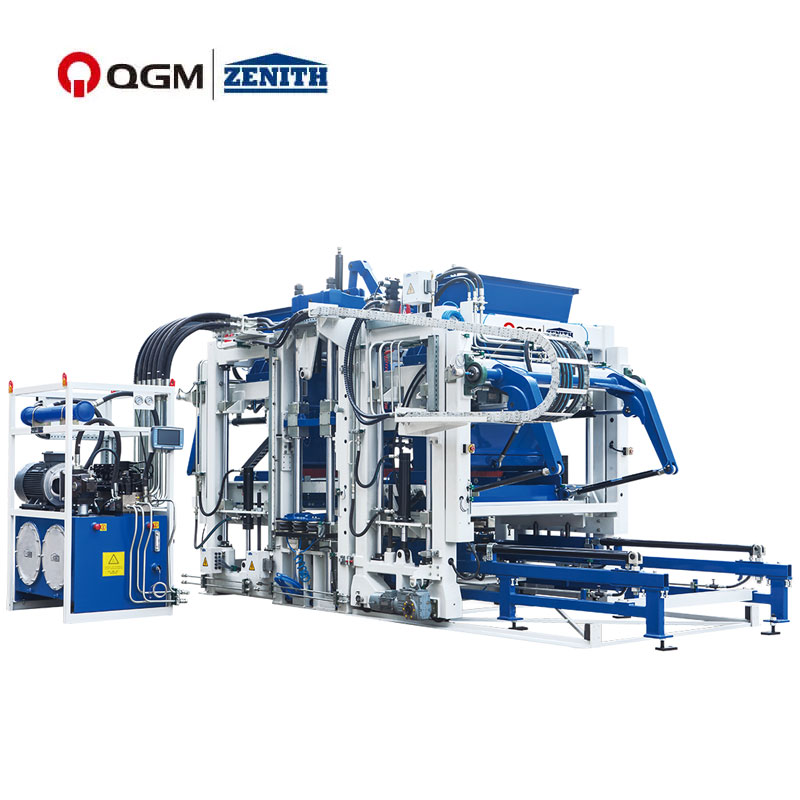Hollow Block Machinery: The Key to Efficient and Durable Block Production
2025-03-18
The construction industry relies heavily on hollow blocks due to their strength, durability, and cost-effectiveness. Whether for residential, commercial, or industrial projects, hollow blocks provide an excellent alternative to traditional bricks. To meet the growing demand, hollow block machinery plays a crucial role in producing high-quality blocks efficiently and at scale.
In this blog, we will explore what hollow block machinery is, its types, benefits, and how to choose the right one for your business.
What is Hollow Block Machinery?
Hollow block machinery refers to specialized equipment used to manufacture concrete hollow blocks by compressing a mixture of cement, sand, aggregates, and water into molds. These machines automate the block-making process, ensuring precision, uniformity, and high production rates.
Hollow block machines are widely used in construction projects, real estate development, and infrastructure building, as they allow for mass production of strong and lightweight blocks.
Types of Hollow Block Machinery
1. Manual Hollow Block Machine
- Requires manual operation for loading materials and compressing blocks.
- Suitable for small-scale production and low-budget operations.
- Produces fewer blocks per hour compared to automated models.
2. Semi-Automatic Hollow Block Machine
- Partially automated but requires manual feeding and removal of blocks.
- Increases efficiency and productivity compared to manual machines.
- Best for medium-scale businesses looking for cost-effective automation.
3. Fully Automatic Hollow Block Machine
- Completely automated with hydraulic or vibration-based compression.
- Capable of producing large quantities of blocks per hour.
- Ideal for large-scale commercial production and high-demand projects.
4. Mobile Hollow Block Machine
- A portable version that moves on-site for direct block production.
- Eliminates transportation costs and speeds up construction.
- Useful for remote construction projects or temporary sites.
Benefits of Using Hollow Block Machinery
1. High Production Efficiency
- Automates the block-making process, reducing labor costs and production time.
- Produces hundreds or even thousands of blocks per day, depending on the model.
2. Uniform Block Quality
- Ensures consistent size, shape, and strength in every block.
- Reduces waste and improves construction precision.
3. Cost-Effective Construction
- Uses locally available raw materials like cement, sand, and gravel.
- Reduces dependency on expensive bricks, making projects more affordable.
4. Environmentally Friendly
- Many machines allow the use of recycled materials such as fly ash and slag.
- Lowers carbon footprint compared to traditional brick production.
5. Versatile Block Designs
- Machines can produce various types of hollow blocks, including:
Standard hollow blocks
Paving blocks
Solid bricks
Curbstones and other custom designs
How to Choose the Right Hollow Block Machine
When selecting hollow block machinery, consider the following factors:
1. Production Capacity
- Determine how many blocks you need per day or per hour.
- For small-scale production, a manual or semi-automatic machine is sufficient.
- For high-demand operations, invest in a fully automatic machine.
2. Machine Power and Operation
- Hydraulic systems offer better compression and stronger blocks.
- Vibration-based machines are cost-effective but may require additional curing time.
3. Mold Customization
- Choose a machine with interchangeable molds to produce different block designs.
- Ensure the mold material is durable (hardened steel is recommended).
4. Automation Level
- Manual machines are budget-friendly but require more labor.
- Semi-automatic machines strike a balance between efficiency and cost.
- Fully automatic machines offer maximum efficiency with minimal labor.
5. Durability and Maintenance
- Select a machine made of high-quality steel for long-term durability.
- Ensure easy access to spare parts and technical support.
Applications of Hollow Block Machinery
Residential Buildings – Used for constructing walls, partitions, and fences.
Commercial Construction – Essential for office buildings, malls, and industrial structures.
Road and Infrastructure Projects – Used in sidewalks, bridges, and drainage systems.
Landscaping and Urban Development – Hollow blocks are widely used for paving and retaining walls.
Conclusion
Investing in hollow block machinery is a smart decision for construction businesses looking to improve efficiency, reduce costs, and produce high-quality blocks. Whether you need a manual, semi-automatic, or fully automatic machine, choosing the right one depends on your production needs and budget.



